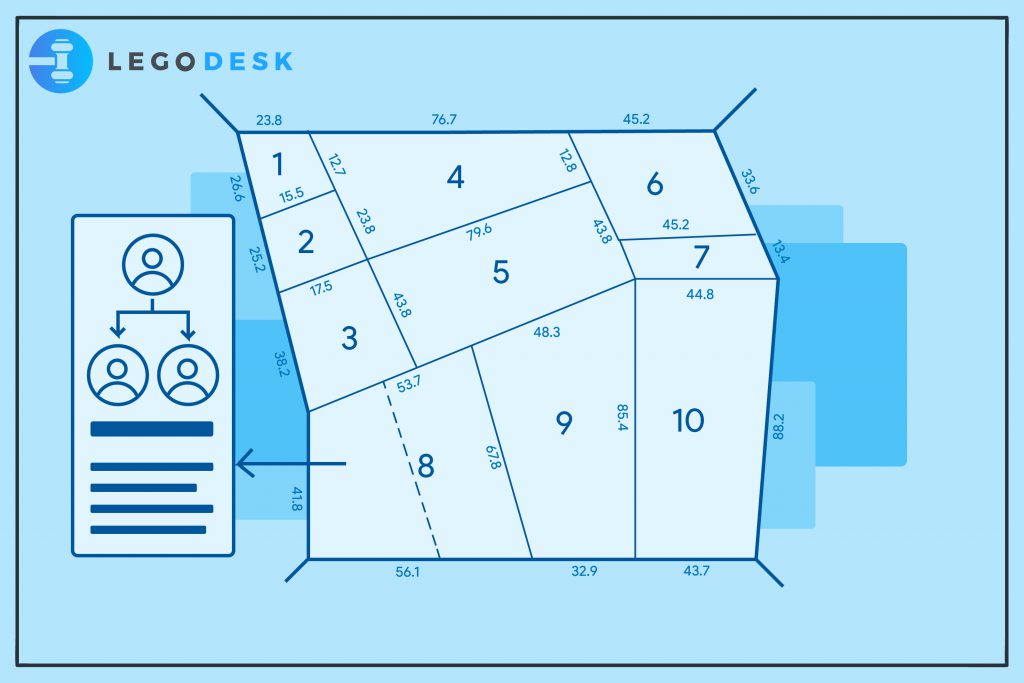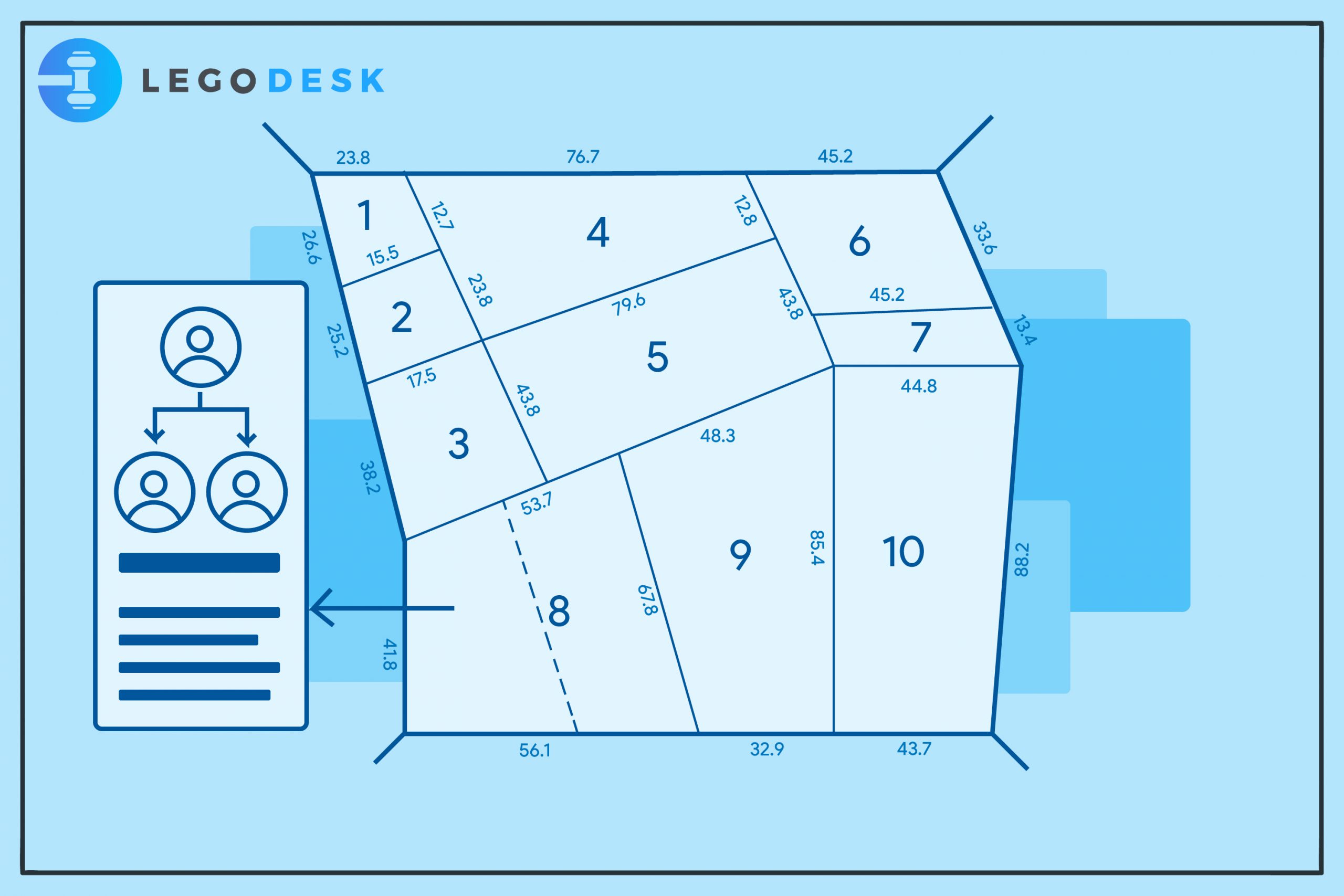
Introduction:
Property- The term “property” was explained in the case of Raichand v. Dattatrya as “property includes all legal rights of a person except his personal rights”. In R.C. Cooper vs. Union of India, the Supreme Court observed that the term property “includes both corporeal things such as land, furniture and incorporeal things such as copyrights and patents.”
Partition- A partition is a division of a property held jointly by several people called co-owners of that property. After partition, each such co-owner gets a share of the property that he is entitled to and becomes the rightful owner of the property. To carry out this partition, a partition deed is executed.
Partition Deed- A partition deed can be defined as a deed that enables the partition of the property among different people, usually, of a family, and defines the share of each co-owner of the property. The partition deed needs to be duly registered with the Sub-Registrar office, only then it’s considered a legal document and can be given as evidence. The deed must be executed on the stamp paper in a very clear and explicit manner, stating the share of each co-owner. After the partition of the property, each person gets the right to sell, gift, or transfer his share of the property according to his will.
Kinds of property that can be partitioned:
There are 2 main categories of property that can be partitioned in India:
1. Joint Family or Coparcenary Property: In this kind of property, all coparceners have a joint interest in the property and it is possessed by all of them jointly. This kind of property can be further divided into 4 categories:
a. Ancestral Property- This property should be 4 generations old, i.e., property acquired by a Hindu Great Grand Father, which is inherited by 3 generations of grandchildren. Property inherited from mother, or uncle, or grandmother is not considered ancestral property.
b. Property jointly acquired by joint family members- This is the property which is acquired by Joint Hindu Family members by their labor and efforts through business or profession with or without the aid of Joint Family Funds. This property is considered as a joint family property unless intended contrary.
c. Property acquired by Joint Family Funds- When a member of Hindu Joint Family acquires separate property with the aid of Joint Family Funds, it will be considered as a Joint Family Property and not separate property.
d. Separate property given to Joint Family Fund- When a member of Hindu Joint Family acquires separate property and gives it to the Joint Family Fund intending to give up all his private rights associated with the self-acquired property, it becomes Joint Family Property.
2. Self-acquired Property: Self-acquired property is the property that a person acquires with his efforts and money and is not inherited from his forefathers. He is the sole owner of the property and has private rights regarding the same. Property acquired by gift or will is also considered self-acquired property. In the same manner, property acquired by adverse possession is also considered self-acquired property.
Modes of Partition:
There are mainly 3 modes by which partition of a property can be carried out:
1. Partition by mutual agreement: This can be further divided into two categories:
a. By Partition Deed
b. By Family Settlement Agreement
2. Partition without mutual consent or Partition through Court
3. Partition through Will Probate
1. Partition by mutual consent:
Partition by mutual consent can be carried out by two methods, one by partition deed and another by family settlement agreement-
a. Partition Deed: If the partition is with mutual consent, the partition deed is needed to be executed by the co-owners. If all the co-owners of the property have mutually decided to divide the property, they can do so by executing a partition deed and registering it at the local sub-registrar office. After that, the partition deed is required to be registered at the office of the sub-registrar where the property is situated. The stamp duty payable in such a case is Rs 1,000 for each share of the property and the registration fee is Rs 500.
• The partition deed can be executed when all co-owners mutually agree to have the property divided.
• The partition deed ensures the division of the property according to the share of the individual.
• Upon the execution of the partition deed, co-owners become rightful owners of their share of the property and become empowered to gift or sell or transfer their share of the property according to their will and needs.
Effect of Partition Deed:
A partition deed creates different owners out co-owners of a property jointly held by them; however, this deed needs to be registered at the office of the sub-registrar to give it a legal and binding effect. The partition deed should also mention the date from which the partition is effective. The names of the parties and their respective shares should also be expressly cited.
b. Family Settlement Arrangement: A property can be divided by the family settlement arrangement as well if the family does not want the Court to be involved. Such a partition is carried out by negotiation and discussion. It is made in the same format as a partition deed, but unlike a partition deed, it does not need to be registered or stamped. It is also not necessary that the family settlement agreement is in writing, it can be made with a mutual understanding of the family members. However, it is necessary that this partition is carried out with the mutual consent and complete satisfaction of the family members, without any fraud, pressure, coercion, or undue influence, and signed by all the co-owners of the property.
2. Partition without mutual consent or Partition through Court:
If the partition is not with mutual consent, i.e., the co-owners are not agreeing to the partition of the property or in conditions where only one or more of the co-owners want the property to be partitioned, the mode of partition is the filing of a lawsuit. So, in such cases, a partition suit is required to be filed in the appropriate court of law. But before a partition suit is filed in court, a legal notice is sent to all co-owners of the property to avoid the court case. The legal notice must state the details of the disputed property, shares of each co-owner, and action required to be taken. If the co-owners do not or insufficiently reply to the legal notice, then a partition suit can be filed. However, the limitation period for filing this suit is 12 years from the date the possession of the defendant becomes adverse to the plaintiff as provided in the Limitation Act, 1963, and the burden of proving that the suit is barred by time is upon the opposite party.
If the partition is not possible merely based on the partition suit, the Court may also appoint a Commissioner to conduct an inquiry and submit a preliminary report. The Commissioner then evaluates the property and submits the report based on which the Court determines the share of each co-owner and divides the property accordingly.
• A lawsuit is required to be filed in the appropriate court if co-owners of the property are not willing to execute a partition deed.
• This must be done after a legal notice has been sent to the co-owners.
• If co-owners ignore or insufficiently reply to the legal notice, then a partition suit can be filed.
3. Partition through Will Probate:
“Probate” is the copy of a Will certified under the seal of a court of competent jurisdiction. According to Section 222 of the Indian Succession Act, 1922, probate can only be granted to the executor under the Will. After the petition has been filed, the Court gives public notice in any newspaper to invite any objection, and if there is no objection, the Court upon being satisfied and considering the evidence grants probate in a probate court hearing.
Conclusion:
In India, both joint family property, as well as self-acquired property, can be divided and partitioned and this partition of property can be carried out in many different ways. If all co-owners of joint property consent to partition, then it can be done in a very simple and hassle-free manner. However, even if one or all co-owners do not consent to partition, the same can be carried out by filing a partition suit in the appropriate court. If the partition is being carried out by a partition deed, then it is compulsory that the partition deed gets registered and stamped before the sub-registrar for it to become legally binding. Only a registered partition deed can be given as evidence in the court. On the other hand, partitions carried out by family settlement arrangements need not be registered or stamped.
Partition where a partition suit is needed to be filed, it is necessary that first a legal notice is sent to all the co-owners of the property which states shares of each co-owner. If not fruitful, then a partition suit can be filed in the appropriate court. A partition can also be carried out through will probate. Partition of property empowers the sole owner of the property to transfer, sell or gift their share of the property, which cannot be done when it is a joint property held by two or more co-owners.

